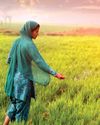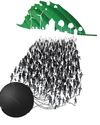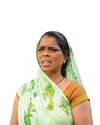
ON JUNE 11, some 600 tribal men and women from Alluri Sitharamaraju district in Andhra Pradesh were reportedly taken to a private hospital in Visakhapatnam for surgery for family planning. Hospital representatives had promised them 5,000 each, free transport, food and stay, says Rama Rao Dora, convenor of Andhra Pradesh Adivasi Joint Action Committee, a volunteer group that works on tribal welfare.
Soon, the committee lodged a complaint with the state's Integrated Tribal Development Agency (ITDA). Dora tells Down To Earth that all the people were discharged following ITDA's intervention on June 16. By then, at least 129 people had undergone the sterilisation surgery. Hospital authorities, however, deny the claim. ITDA has ordered an inquiry into the incident.
Andhra Pradesh Adivasi Joint Action Committee has raised several concerns about the incident. For instance, people were shifted from one facility to another and medical protocols were not followed. But its biggest concern is most of the people taken to the hospital for sterilisation surgery belong to Particularly Vulnerable Tribal Groups (PVTGS), such as Kondu, Bagatha, Koraja and Valmiki. In Andhra Pradesh, these communities are prohibited from availing surgical procedures for family planning to avert a decline in their population.
IRRELEVANT LINK
This story is from the July 16, 2022 edition of Down To Earth.
Start your 7-day Magzter GOLD free trial to access thousands of curated premium stories, and 9,000+ magazines and newspapers.
Already a subscriber ? Sign In
This story is from the July 16, 2022 edition of Down To Earth.
Start your 7-day Magzter GOLD free trial to access thousands of curated premium stories, and 9,000+ magazines and newspapers.
Already a subscriber? Sign In

On shaky ground
Despite reporting net gains in green cover, the latest forest survey shows degradation of natural forests, particularly in ecologically sensitive hotspots

Burden of proof
The government's drive for e-KYC verification to ensure rightful targeting of beneficiaries has proved exclusionary for many

Rupee slide impacts agricultural trade
THE UNION Cabinet on January 1, 2025, approved the extension of a subsidy package of ₹3,500 per tonne on di-ammonium phosphate (DAP) for companies.

THE 500 GW SWITCH OVER
Coal is the king of energy at present. India needs to dislodge it with clean energy for an equitable green transition

MANIFESTING 500 GW
Ensure that renewable energy is available round the clock.Establish a viable market and reward those who take lead

Lifting a curse
How Gangabai Rajput helped her water-scarce village in Madhya Pradesh let go of superstition and revive an ancient waterbody

HOLD THEM SACRED
The Supreme Court has recommended that the Union government create a comprehensive policy for the governance and management of sacred groves across the country

REPORT CARD 2024
Coal is still the king in terms of electricity generation. But new renewables, mainly solar power, have shown an impressive growth

'India a laboratory for seismologists'
India is no stranger to earthquakes. In recent memory, Latur and Bhuj districts in Maharashtra and Gujarat witnessed devastating tremors in 2003 and 2001 respectively. Such quakes leave clues that can aid preparations for future events, say seismologists KUSALA RAJENDRAN, professor, Indian Institute of Science, and CP RAJENDRAN, adjunct professor, National Institute of Advanced Studies. The Rumbling Earth-The Story of Indian Earthquakes, captures their work on historical as well as recent quakes. In an interview with ROHINI KRISHNAMURTHY, they discuss the science of earthquakes, why the Himalayas are due for a huge event and why prediction remains a challenge. Excerpts:

Capturing Siang
As India pushes for a mega-dam on the Siang river to counter China's upstream projects, the Adi tribal community of Arunachal Pradesh fears losing ancestral land